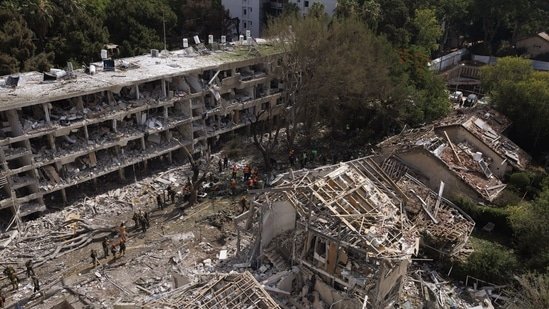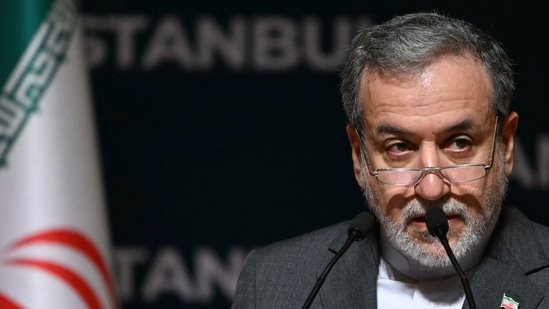In one of the most volatile escalations in recent memory, the Middle East trembles as hostilities between Iran, Israel, and the United States threaten to spiral into an all-out regional conflict. From missiles to diplomacy in shambles, this 11-day flare-up has left the world on edge. Below, we chronicle the events that have pushed global powers to the brink of war, with reactions from all sides and what this could mean for the future.
Sirens and Strikes: An Exchange of Attacks
The crisis that flared last week entered its 11th day with some of the most disturbing developments. On Monday, sirens wailed in cities throughout Iran and Israel, and both sides of the confrontation traded fire. Israel has conducted a fresh round of cross-border attacks, hitting six Iranian airbases and other missile depots. Among the most notable of those targets: Iran’s Fordow nuclear site, a heavily fortified underground complex that had long served as a physical symbol for Tehran’s nuclear program.
Israeli military sources said that helicopters and fighter jets were hit in the assault and also several launch pads at missile sites. Iran did not confirm the extent of the damage, but it confirmed the strike on Fordow and warned of dire consequences.
Iran, in turn, launched dozens of projectiles toward Israeli cities. Explosions were also reported in northern Tehran, while sirens blared for well over half an hour in numerous locations in Israel. The exchange was one of the bloodiest nights of fighting since the conflict began.
Human Cost of the Conflict
Apart from the military briefings and diplomatic communications, the impact of this war is being borne on the streets and in the hospitals. More than 400 people have been killed in Israeli strikes since June 13, Iran’s health ministry said. These are civilians caught in the crossfire when military targets have been struck near residential areas.
Israeli officials said in turn that 24 people had been killed in Iranian missile strikes. Humanitarian infrastructure has been targeted as well – a Red Crescent building in Tehran was reported hit in the latest wave of Israeli attacks, again raising serious questions around the rules of engagement being applied in this intensifying conflict.
Also read, Iran Uses Its Biggest Missile To Strike Israel After US Bombing
U.S. Airstrikes Deepen Crisis
The situation was dramatically elevated when US initiated its own military attack against Iran. In a daring and risky move, seven B-2 bombers released 14 GBU-57 bunker-buster bombs on three of Iran’s most prominent nuclear facilities – Isfahan, Natanz, and Fordow.
President Donald Trump spoke to the nation in the hours following the attacks, claiming the strikes inflicted “massive damage” on Iran’s nuclear program. He used the word “obliteration” to describe the impact of the strikes, saying they had hit deep inside of Iran’s critical infrastructure.
Iran’s military quickly struck back, declaring the United States had widened the pool of “legitimate targets” for future retaliation. A senior spokesman warned of “serious, unpredictable consequences” and said the American actions were bringing the region to the brink of uncontrollable escalation.
Diplomacy in the Crosshairs
Already incensed by Israel’s earlier strikes, Iranian officials saw the American intervention as a betrayal of existing diplomatic initiatives. The Foreign Ministry spokesman, Esmaeil Baqaei, called the airstrikes a “betrayal of diplomacy,” noting that Iranian officials had been in the midst of negotiations when the bombs began to fall.
“From now on, going forward, future generations will not forget this,” Baqaei said, implying that any goodwill earned from previous talks may have been birthed to die. The comment underscored how rapidly peace efforts can unravel after aggressive action – even against military targets.
Israel’s and the U.S.’ dual assault has cast doubts on the sincerity and prospect of diplomatic channels. For Iran, the message was unmistakable: after a period of trying to negotiate, now its adversaries are turning to military pressure as their main means of dealing with it.
Global Reactions: Warnings and Urgency
The response of the outside world was swift and straightforward. At an emergency meeting of the UN Security Council, Secretary-General Antonio Guterres appealed to all parties to thwart the potentially perilous cycle of “revenge and retaliation.” He warned that ongoing violence might have consequences beyond the region.
China joined the warning, urging the world to “avoid the spillover of war.” China emphasized the threat to global trade and energy security, especially with the conflict near the Strait of Hormuz, one of the world’s most important oil transit chokepoints. By Monday, oil prices had jumped more than 4 percent, as concerns mounted that shipping routes could be cut off or disrupted.
Separately, the leaders of the U.K., France and Germany pressed together for Iran to step back from further escalation. While these European powers have generally favored engagement with Iran, they are now the voices urging restraint in a conflict that threatens to spiral out of control.
Also read,US attack on Iran’s nuclear facilities: The radiation leak threat, explained
Signals of Politics: From Washington to Tel Aviv
The quotes from President Trump suggested such a change in American posture was coming. He not only boasted about the success of the strikes but also suggested the need for a change in Tehran. “Iran now must honor the same principle.” (He went on to imply that a change of regime might be necessary to achieve peace.)
Israeli Prime Minister Benjamin Netanyahu publicly thanked Trump and said that the airstrikes had pushed Israel closer to its objectives. His remarks were an indication that Israel sees the U.S. role not just as support but as strategic backing in a concerted attempt to contain Iran politically and militarily.
And these statements have done nothing to allay Iranian suspicions that Israel and the United States are working in concert, not only to contain Iran’s nuclear program, but also to undermine the leadership altogether.
What Comes Next?
The road ahead is fraught with danger and unknown peril. Iran’s pledge of vengeance indicates that this fight is not finished. With each side incurring painful casualties and losses on the battlefield, the risk now that neither would back down quietly has increased.
Diplomats must now urgently recalibrate their efforts. More traditional negotiation structures may no longer appear credible to Iranian leaders, who believe that they were betrayed while still at the negotiating table. Regional players such as Turkey, Qatar and Oman might try to mediate, but the path to de-escalation is more limited than ever.
The United Nations, the European Union and even non-aligned countries are likely to have to intervene in the process to bring it back to talks. Failure to do so might lead to more strikes, additional civilian casualties and the possibility of all-out regional war that draws in neighboring countries and world powers.
Final Reflection
The back and forth shooting between Iran and Israel is escalating with U.S. attacks on Iran’s forces and subsuming diplomacy by force in the process. Since June 13, more than 400 people have died in Iran, alone. Warplanes, missiles, and war talk are dominant, leaving very little room for conversation or compromise.
If this approach continues, it could result in not only more loss of life, but also disruptions in global energy markets and permanent regional instability. The international community needs to speak up boldly, not just with words, but with activity that will help restore this dialogue and halt the bloodshed.
FAQs
- Q: How many people have died in the current Iran-Israel conflict?
A: Iran reports over 400 deaths due to Israeli strikes since June 13, while Israel has reported 24 deaths from Iranian missile attacks. - Q: What facilities did the US strike in Iran?
A: The US targeted Iran’s Isfahan, Natanz, and Fordow nuclear sites with bunker-buster bombs. - Q: What did President Trump say about the attacks?
A: Trump said the strikes caused “massive damage” and referred to them as an “obliteration” of Iran’s nuclear program. - Q: What are the global concerns regarding this conflict?
A: Nations fear regional spillover, disruptions in oil transit via the Strait of Hormuz, and rising global energy prices. - Q: Is there any diplomatic resolution in sight?
A: Diplomatic efforts are currently strained, with global powers urging de-escalation, but no breakthrough has yet emerged.
Reference
Stay updated with all the latest news and insights – News Of US






